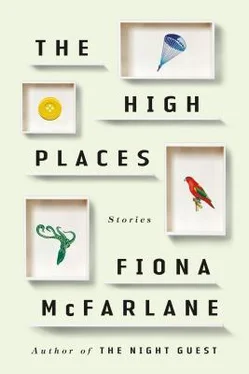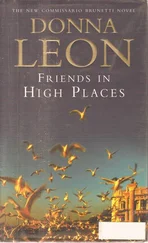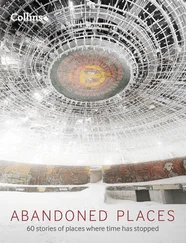‘This is my button,’ he announced, over and over, although his sister told him to stop. He lay on the bed, flexing his plump stomach, watching his navel and checking, every so often, that Rose was too.
‘My button!’ he cried.
‘Stop it,’ said Lizzie.
‘I don’t mind,’ said Rose.
Lizzie ignored her. ‘Alex,’ she said, ‘can’t you see Julia would like to make the bed?’
Alex froze on the bedcovers. Rose wasn’t sure how to remind her niece that her name wasn’t Julia.
‘Julia doesn’t need to make the bed,’ said Alex. ‘Aunty Rose made the bed already.’
Lizzie sighed with a laboured patience. She said, in a gentle, teacherly tone, ‘Julia brought a silk robe and a patchwork quilt from home to put on our bed so we’d be comfortable here and sleep quietly and you won’t get up in the middle of the night and cry.’ She tilted her fastidious head to look at Alex in a way Rose recognised as Susan’s.
‘No, she didn’t,’ said Alex, but he rolled off the bed.
‘Julia is Lizzie’s good friend,’ said Susan from the doorway. She emphasised good friend ; she was benevolent and motherly, wise when it came to imaginary friendships, indulgent with her children who had lost their father. She expressed this to Rose with a significant smile. ‘Supper’s ready, darlings,’ she said, and Alex charged from the room so that his mother was forced to follow.
Lizzie took Rose’s hand as they walked to the dining table. ‘Julia is my friend,’ she said. ‘My very best friend. She’s coming to America.’
‘Really?’
‘ Really . I know you can’t see her, but she’s not a ghost. She’s not dead. She looks a bit like that lady over there.’
Lizzie pointed to the picture of Adelaide Turner on the mantelpiece. Adelaide was in costume for her clown dance: red cheeks and starry outfit, hair plastered in two curls at her temples.
‘Then she’s very pretty,’ said Rose.
Lizzie smiled as if she liked the thought of this but didn’t believe it to be true.
* * *
Susan’s three days in Sydney had been carefully planned. There would be, on Sunday, a trip to the zoo. On Saturday the children would go to the pictures and Susan would have her hair done; they would all shop for gifts and new clothes. On the Friday, when Rose had to work, they would come with her on the tram into the city and walk to Macquarie Street and down the hill where the white sails of the water would rise up to meet them. They would stroll in the botanical gardens and count the steps of the library and sit under palm trees eating ice-cream and reading from comics and magazines. Then they would meet Rose after work. They would all travel back to Rose Bay together, into a quiet Friday night of sleeping children and the hum of the harbour. The thought of them waiting for her at the end of the day made Rose nervous; she recognised in herself an unusual conviction that she owned something that ought to be protected.
Rose left work with the other girls, typists and stenographers and telephonists, all trim and efficient with busy plans and singsong weekend voices. Susan and the children seemed diminished by comparison. They stood on the pavement, waiting, and Susan turned her head from left to right as if Rose might appear from anywhere except the direction she was walking from.
The office girls enveloped the children. ‘Do you live on a farm? Do you ride ponies? How old are you? Nine! Five! Is this your first visit to Sydney?’ The children, bewildered and loving, stared up at these bright faces and forgot how to talk.
On the tram, when asked about her day, Lizzie said, ‘Alex needed to use the toilet but we couldn’t find one and then Julia knew where they were. I saw flowers in a glasshouse that grew in the Bible.’
‘They were ferns,’ said Susan.
‘Is that old?’ asked Alex.
Lizzie looked at him with concern. ‘Of course it is,’ she said.
The children were restless at bedtime. Julia wanted a light left on. Rose waited with them for tiredness to come, and was delighted by the sure and sudden way it did. Once asleep, they breathed like birds. Their bodies lifted, briefly, then fell back. As Rose returned to the living room, Susan said, ‘There’s so much dust in the air. How do you keep your skin cool? And so much noise in the street. I hope they’ll sleep.’
But the children slept long and evenly, their soft arms rigid over the sheets.
Rose and Susan sat by a window with one lamp on and the curtains open. They looked almost identical in this pliable light. Ships sounded out on the harbour and a buoy in the bay fell and fell in the tide. Susan composed lists in the lamplight: errands, letters to write, shopping to be done. One finger was bright with her wedding ring. Rose disliked the publicity of wedding rings. Or perhaps she was only irritated that Robert was out with his wife tonight, at a fancy-dress party to which Rose had also been invited. She would have gone as a dancer, with red circles on her cheeks and her hair curled around her face. At some point during the party Robert would have placed his hand on the small of her back, but he would have left with his wife. Usually, Rose was happy to go home alone to her bay, but there were times when her envy of Robert’s wife felt like a stone resting at the base of her spine, a reminder that she was wanted, but not singly, and not enough. She remembered feeling that way about Susan, once. Maybe even now. Rose seemed to have made a career of this doubleness, as if she always came in pairs. Jonathan had listed for her all the animals that do not mate for life. Chinchillas, he said. Bison. Deer, bears, sea lions. Elephants with their old memories. Waterfowl of various kinds. He said these names lying in bed beside her in that flat and pollinated town, in those new days after Lizzie was born, and Rose, who had already decided to leave for Sydney, loved this menagerie and was made impatient by it.
‘Many whales,’ he said, ‘don’t even mate for a season. Swans, beloved by the sentimental — that’s you, Rosie — don’t even necessarily mate for a season.’
Susan looked up from her list. ‘I hope you don’t disapprove of the way I indulge Lizzie. I mean with Julia,’ she said. ‘It’s all been so hard on her. But I thought the passage over, our time on the ship, would be a good chance to wean her off.’
Rose said, ‘Yes, I suppose it would.’ I know nothing, she thought, about the hearts of children.
Susan sat quietly for a moment. She was very pretty, still, and at thirty-five a widow. Then she said, looking out across the harbour, ‘Oh — America.’
* * *
The zoo rose out of the water on the north side of the harbour, a hillside of animals with Sydney’s best views. It pleased Rose to think that as she looked across the bay from her window there were giraffes looking back. A city with a harbour-side zoo was a happy city, in Rose’s estimation. It was a city playing a sweet joke upon itself.
To reach the zoo on Sunday they caught a ferry from Circular Quay, that busy square of water. The wharves hovered out upon the harbour, covered over, like Japanese pavilions. The day was warm and windless. The Coral Sea was already docked in the quay. The ship was a vast wall in the water, with small windows, and it seemed ridiculous that something of this size could remain afloat over the profound Pacific.
‘One of those windows will be yours,’ said Rose, kneeling beside Lizzie. ‘Isn’t that exciting?’
‘Which one?’ said Lizzie, turning her face up to her mother. ‘Which is our window?’
‘We’ll find out tomorrow,’ said Susan.
‘And that will be Julia’s window too,’ said Lizzie.
Susan kissed the top of Lizzie’s head. Then she said, ‘No, Julia will have her own window.’
Читать дальше












